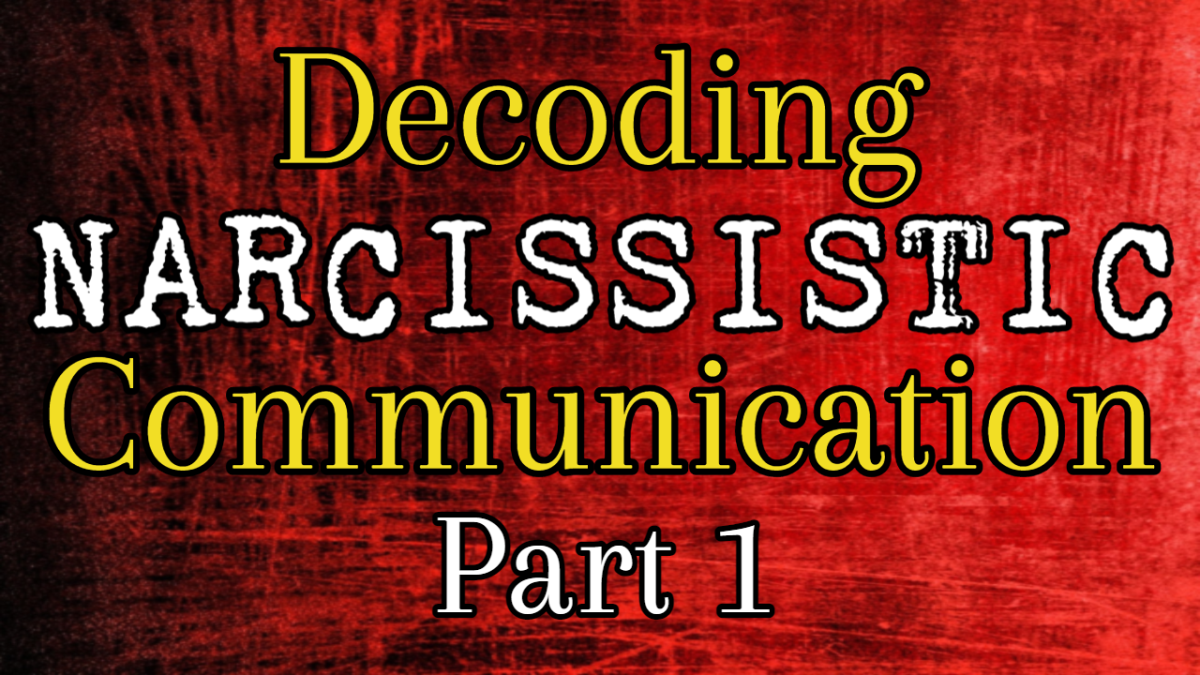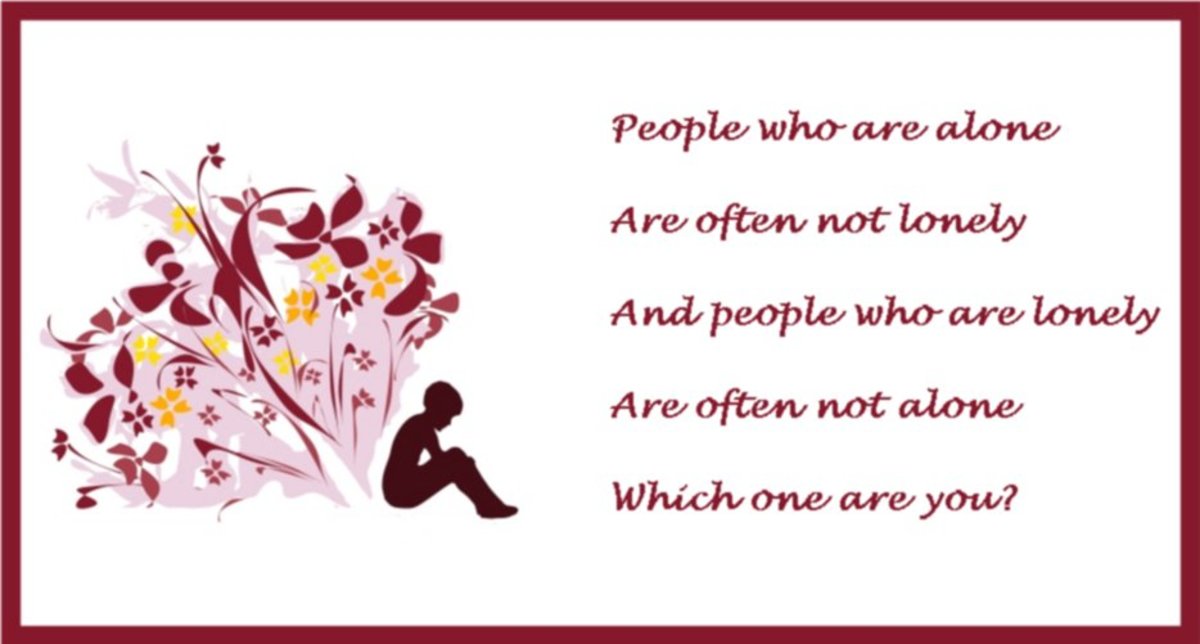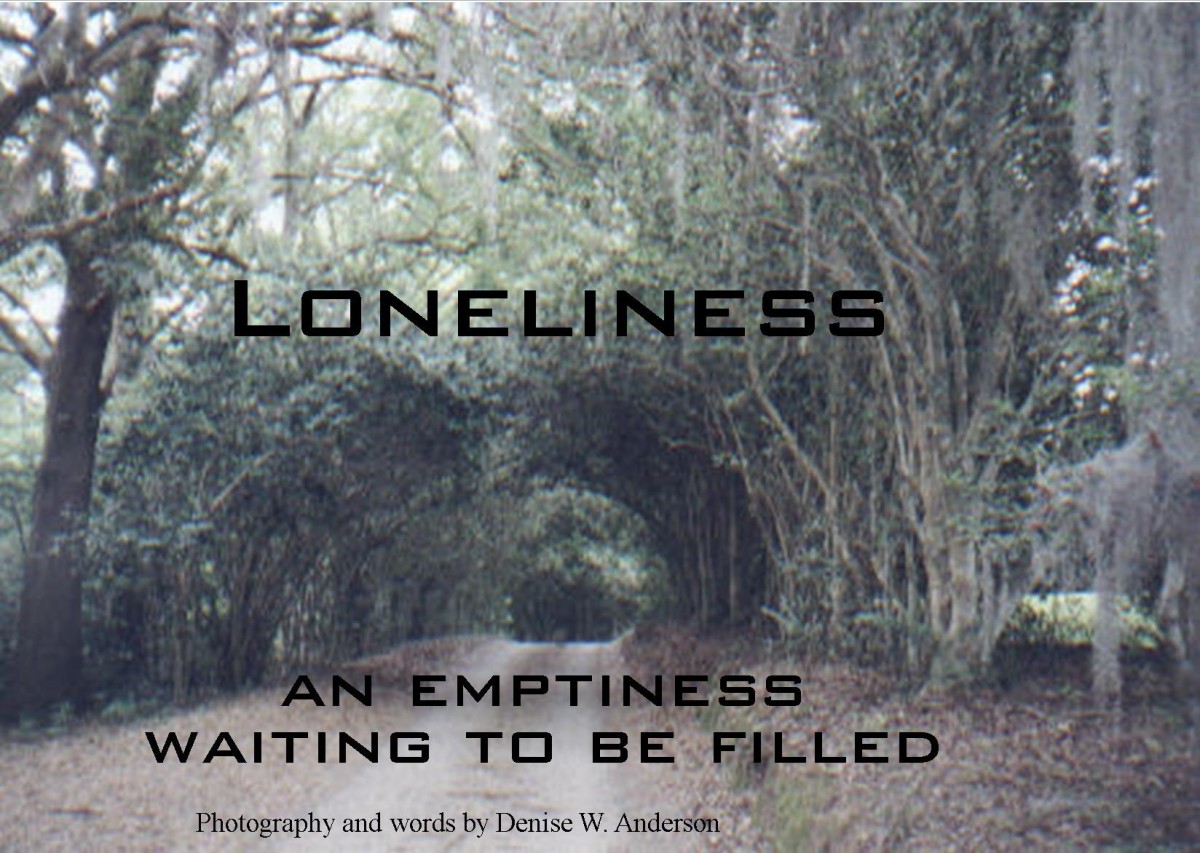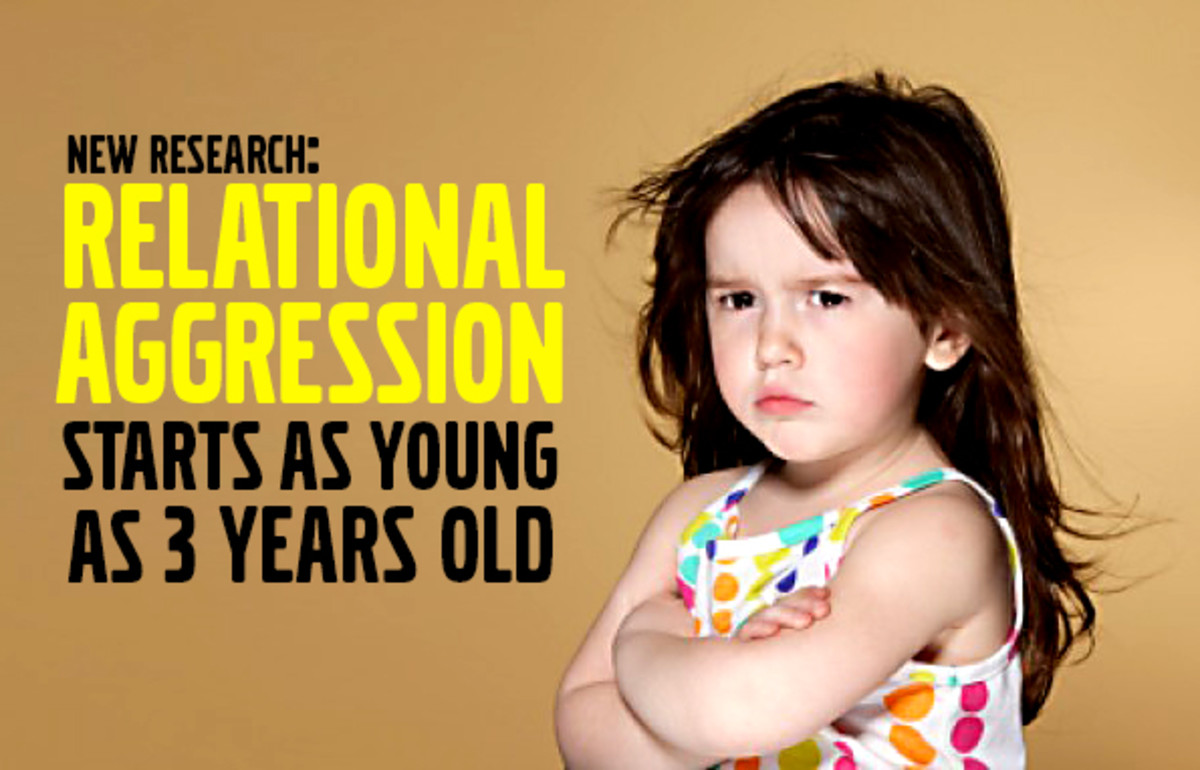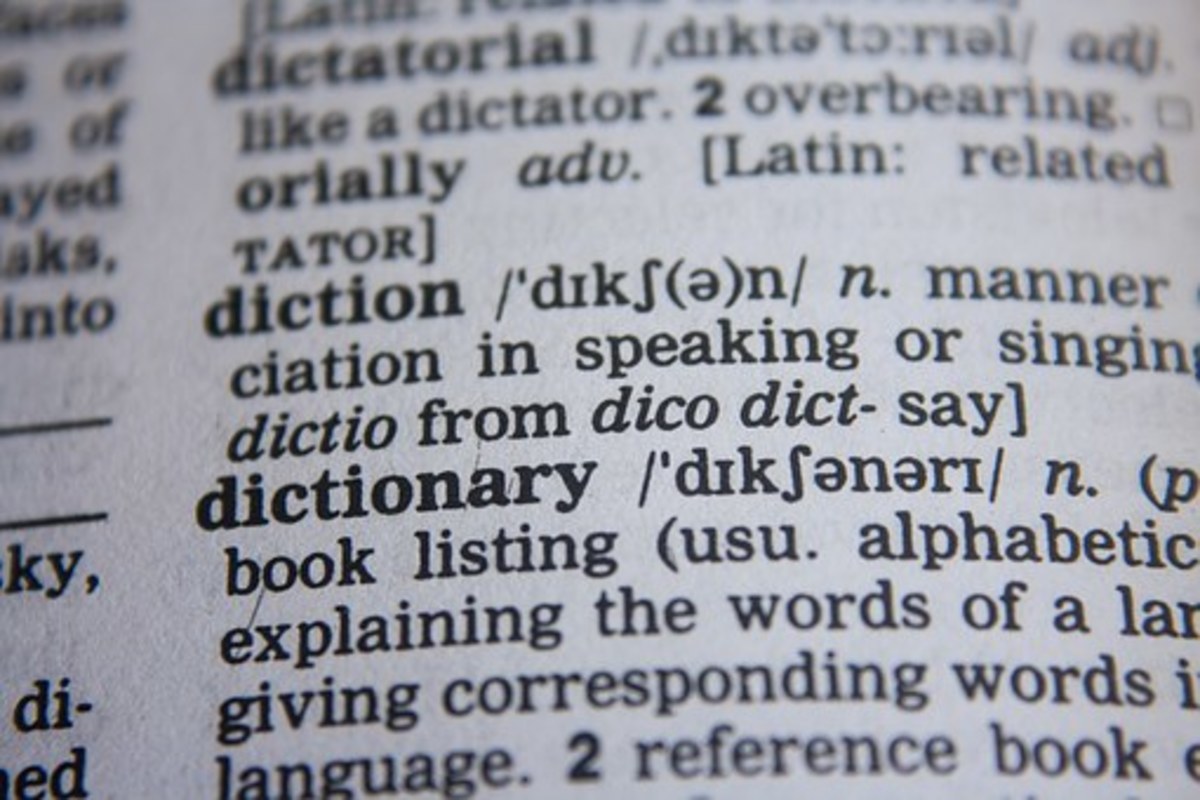Language and Loneliness
''Be the change you want to see in the world.” This famous quote by Ghandi that has touched so many, on so many levels. This phrase has been used thousands of times to reach out to people and to have an effect on them, therefore, encouraging them to make a difference. Some would say that is easier said than done, however, it can easily be done as well. There are many ways that people can affect others, one of them being language. It is the basis of communication and one of the most effective ways to leave a mark on one another. Things said in literature, quotes, public speakings and many other forms, have often influenced many individuals, which is indeed their purpose; to make an impact. One of the main reasons that people try to affect others with their words is to make a difference and to fix a problem. That is exactly the purpose of Ella Wheeler Wilcox’s poem, Solitude, and Baya Voce’s TedTalk on loneliness. They establish the truth about what it is like to be alone, why people are lonely and why nobody should be. Their primary objective for creating these works was to put an end to the problem. With the power of language, everyone can understand the issue, question why it is happening, and finally, solve the problem and change the world.
The first step in using the power that language holds is to understand it. Wheeler’s poem is very bluntly about the solitude that people feel when they are unhappy. When someone is unhappy, others tend to avoid the negativity. The simplest way to understand is to experience. Most people have once in their life experienced rejection due to their emotional state, it is the unfortunate truth that a person’s mood affects those of the people around them. This is easily understood since most people have gone through this themselves, however it is also important to know what it is like on the other end. Being the one affected by someone else’s mood or behavior, is a difficult situation to be in. When a person is depressed or unhappy, people around them tend to feel this way as well, which makes it very difficult for others to comfort or support them. Loneliness is also a contributing factor to the problem. When a trauma occurs in someone's life, such as death, divorce or illness, people tend to isolate themselves. They feel as though, in order to overcome their misery, they need to be alone and suffer privately, which is part of why solitude and loneliness have become a serious problem that needs to be resolved, and once people have experienced this personally and understand the issue, they are one step closer to putting an end to it.
A survey by the Harris Poll from 2016, showed that 72% of the 2000 Americans that took the survey, experienced loneliness. It is safe to say that people understand that solitude and loneliness are a problem in the world. Now the procedure is simple, find out why this is happening. One of the easiest ways to find an answer, is research. In her TedTalk, Baya Voce identifies loneliness as a health crisis, and not simply an emotion. Other researchers, such as John Cacioppo, have identified loneliness as a warning from the brain, that something is wrong or something is missing, much like how people feel hunger or thirst. The long for human connection is a basic necessity for everyone, just like eating and drinking. Human beings are social creatures who genuinely need each other to survive, not only on a physical level but on an emotional one as well. People need each other, however they still isolate themselves and others when they truly need human connection more than ever. It has been found that certain habits or emotions such as obesity, smoking, loneliness and happiness can actually be contagious. The poem Solitude, was written after the author had experienced this herself. On a train, on her way to a celebration, Ella Wheeler Wilcox had observed a woman sitting by herself crying, so she decided to sit with the woman and try to comfort her for the rest of her journey. Once Wheeler had arrived, she no longer wanted to attend the celebration, as she felt too unhappy. Looking at herself in the mirror, searching for what could have caused her misery, she thought back to the distraught widow she had met on the train. That is when she started writing the poem Solitude. Sadly, the answer is as simple as that; emotions are contagious and unhappy people can negatively affect those around them.
Now instead of being constantly trapped in a vicious cycle of sadness, there are solutions. The next step in using these two works to their full potential, is to go back to the pain reason they were written in the first place, which was to put an end to a problem. Even though Wheeler’s poem is sad and negative, it can still have a positive affect on it’s readers. It is said that the first step in fixing a problem is to admit that there is one and that is the purpose of Solitude. It depicts the very harsh reality that, when put most simply, people don’t want sad people in their lives. Nearly everyone has been the one left alone due to their feelings, or been the one to leave others. Once is accepted people can finally move on to solving the problem instead of ignoring it. Which is a major part of Voce’s talk. First, she brings people’s attention to the problem, just like Wheeler, however Voce goes even further by then proving that people really need each other to survive. The question remains, how to put an end to loneliness? It can be said that loneliness is sometimes a cause of sadness. Now sadness in life is indeed unavoidable, however Voce confirms that there are ways to tackle the problem before it gets too far and affects other poeple. She calls this an anchor of connection, by which she implies that everyone should have their own anchor, that they can fall back on when times are difficult. An anchor of connection could be something as simple as eating dinner with the family every night and talking, or meeting up with friends once a week to keep up with each other’s lives. It is especially important to remember to always go back to that anchor of connection when something goes wrong in life. Something as simple as talking to friends and family about good days, or bad days, or happy moments or rough patches, can genuinely keep people happy and connected to one another, and in conclusion, put an end to loneliness.
After all, just about anyone can change the world, it may seem impossible but with the power of language, anyone can encourage everyone to make a difference. It is evident that there is a dilemma at hand; people are constantly feeling lonely or isolated when they truly need each other most. This predicament needs to be put to an end, and people like Ella Wheeler Wilcox and Baya Voce have done their part by creating something for everyone else to start with. The poem Solitude and the TedTalk on loneliness can greatly impact its audience to make a difference. To do this, the reader is required to first, understand the situation by experiencing the dilemma personally, and according to Baya, one out of five people have felt lonely, therefore somebody has personally, or knows someone who has. Once the problem is understood, the logical thing to do is question why it is happening. Why do people isolate themselves and each other when they are at their weakest? Through research, it can be found that the simplest answer is that one person’s sadness has an effect on everyone around them. The final step, of course, is to figure out how to solve the problem. Wheeler shows that bringing more people’s attention to the problem is a strategic first move. Voce then teaches everyone about anchors of connection, and that the best way to steer clear from loneliness is to always have people in life to talk to about the good things in life and, more importantly, about the bad things. By simply reading or listening, a huge difference can be made. The empowerment given to people by language, speech and literature can move mountains. That is why it is crucial to take language seriously, because the power that words possess is passed on to those who are listening and that power can be given to anyone who is ready to understand, question and change the world. After all, as Steve Jobs said; ‘’the people who think they are crazy enough to change the world, are the ones that do.’’

